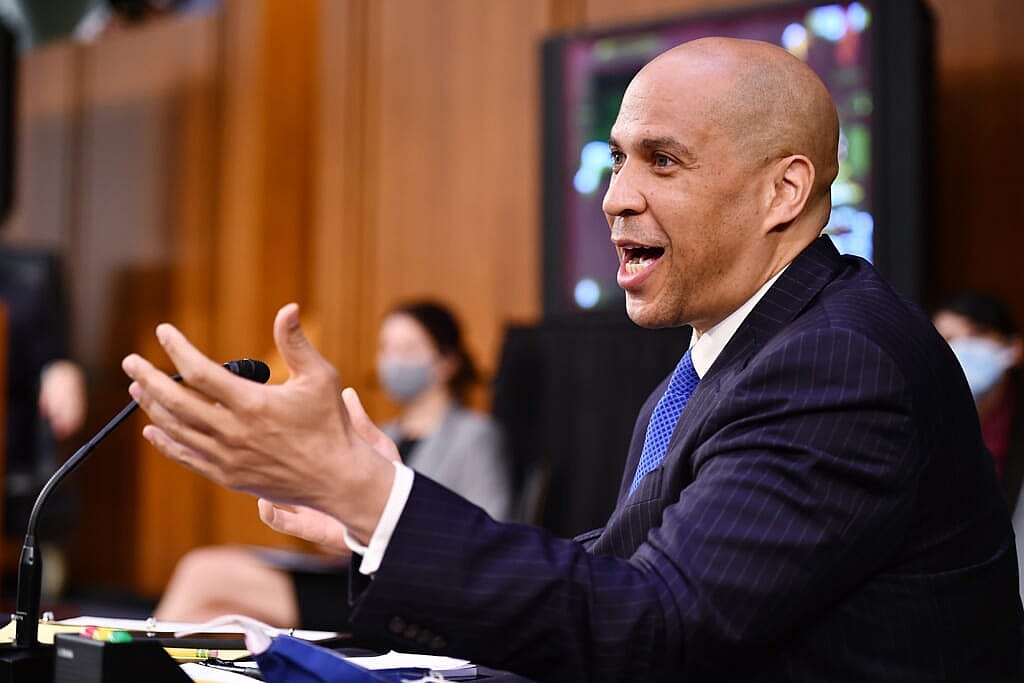Those incarcerated for low level drug crimes could possibly see some relief.
Terry vs. United States will be presented before the Supreme Court on Tuesday. Depending on the result, individuals sentenced for having small amounts of crack cocaine could be eligible for reduced sentencing, according to reports acquired by TIME.
“This circuit split is untenable,” argues Tarahrick Terry’s legal team in his petition, highlighting that “geography alone now determines” whether “countless” of those serving low-level crack cocaine convictions are eligible to apply for a sentence reduction.
Read More: Bill banning critical race theory in public schools becomes law
Terry was sentenced to 15.5 years in prison back in 2008 for having 3.9 grams of crack cocaine.
He attempted to have his sentence reduced under the First Step Act, signed by former President Trump in 2018, as an attempt to reverse the racially unfair consequences of mass incarceration due to disparities between crack and cocaine. But the 11th U.S. Circuit Court of Appeals of Atlanta denied Terry. The court ruled Terry’s low-level offense was not covered under the First Step Act and that it was reserved for high and mid-level crack offenders.
Terry vs. United States essentially argues that those arrested before 2010 due to small amounts of crack cocaine should be up for sentencing relief.
However, similar to the First Step Act, Terry vs. United States has bipartisan support. “Had Congress intended to exclude individuals with low-level crack cocaine offenses from relief, Congress, of course, could have done so,” said the Senators who are in support of Terry.

Senate Republicans Chuck Grassley, Mike Lee and Senate Democrats Dick Durbin and Cory Booker filed a brief in support of Terry.
“The Fair Sentencing Act, however, applied only to sentences imposed after the legislation’s effective date. As a result, as Amicus Senator Booker explained, it left thousands of ‘people sitting in jail … for selling an amount of drugs equal to the size of a candy bar’—even though those individuals have now watched people come in and leave jail for selling enough drugs to fill a suitcase,” read the brief.
When the Supreme court first took the case in 2020, the Administration’s Justice Department said Terry and other low-level offenders were not eligible for re-sentencing. Still, the Biden administration put in a petition for a reversal.

Read More: Bill and Melinda Gates announce they are ending marriage
“This case is about whether individuals who have languished in prison for committing low-level crack offenses deserve a chance at a second chance more than a decade after they were originally sentenced,” said the Americans for Prosperity Foundation in a brief in support of Terry. “We believe the answer must be ‘yes.’”
When the First Step Act reform bill was initially signed, Booker credited its worth but brought attention to how flawed the American criminal justice system is.
“Our country’s criminal justice system is broken – and it has been broken for decades. You cannot deny justice to any American without it affecting all Americans. That’s why the passage of the First Step Act tonight is so meaningful – it begins to right past wrongs that continue to deny justice to millions of Americans.
“This bill is a step forward for our criminal justice system. By no means can it be the only step – it must be the beginning of a long effort to restore justice to our justice system.”
Have you subscribed to theGrio’s podcast “Dear Culture”? Download our newest episodes now!
TheGrio is now on Apple TV, Amazon Fire, and Roku. Download theGrio today!

